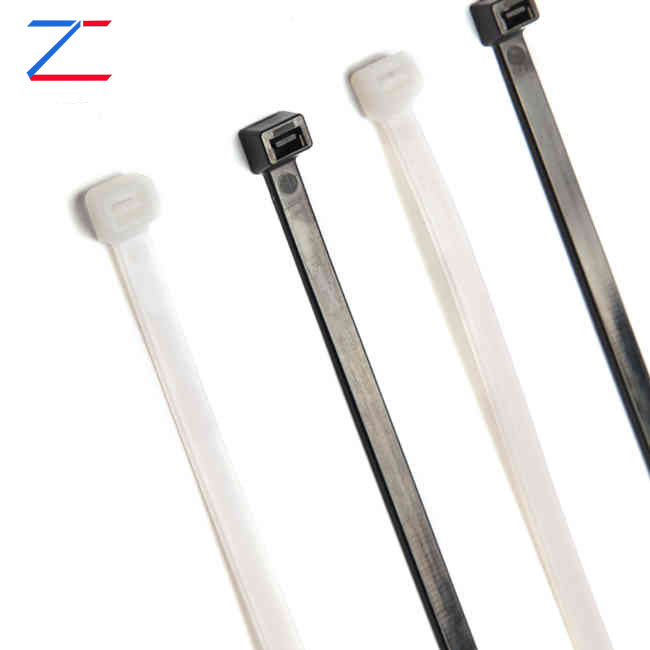What is the difference between nylon and PVC cable ties?
2024-01-11
Nylon and PVC (Polyvinyl Chloride) are two different materials commonly used in the manufacturing of cable ties. While both are widely used for bundling and securing wires and cables, they have distinct characteristics that can affect their performance in various applications. Here are some key differences between nylon and PVC cable ties:

1. Material:
- Nylon Cable Ties: Nylon is a strong and durable synthetic polymer known for its toughness and resistance to abrasion. Nylon cable ties are widely used in various industries due to their strength and versatility. They are also resistant to chemicals, UV rays, and weathering.
- PVC Cable Ties: PVC is a thermoplastic polymer known for its flexibility and electrical insulating properties. PVC cable ties are generally softer and more flexible compared to nylon ties. However, PVC may not be as resistant to certain environmental conditions as nylon.
2. Strength and Durability:
- Nylon Cable Ties: Nylon is often considered stronger and more durable than PVC. Nylon cable ties have high tensile strength, making them suitable for applications where a secure and long-lasting fastening solution is required.
- PVC Cable Ties: PVC cable ties are generally less strong than nylon ties. While they are flexible, they may be more prone to breakage under heavy loads or in demanding conditions.
3. Temperature Resistance:
- Nylon Cable Ties: Nylon cable ties are known for their good temperature resistance, often able to withstand a wide range of temperatures without becoming brittle or losing their strength.
- PVC Cable Ties: PVC cable ties may have limitations in extreme temperatures. They may become more rigid in cold temperatures and lose some of their flexibility, potentially making them more susceptible to breakage.
4. Chemical Resistance:
- Nylon Cable Ties: Nylon cable ties generally exhibit good chemical resistance, making them suitable for use in various environments, including those with exposure to oils, solvents, and other chemicals.
- PVC Cable Ties: PVC cable ties may have limited resistance to certain chemicals compared to nylon. It's important to consider the specific chemical environment when choosing cable ties.
5. UV Resistance:
- Nylon Cable Ties: Nylon cable ties are often UV-resistant, making them suitable for outdoor applications where they will be exposed to sunlight.
- PVC Cable Ties: PVC cable ties may have varying degrees of UV resistance, and some may be more susceptible to UV degradation over time.
In summary, the choice between nylon and PVC cable ties depends on the specific requirements of the application, including the environmental conditions, load-bearing requirements, and chemical exposure. Nylon cable ties are generally favored for their strength and versatility, while PVC cable ties may be chosen for applications where flexibility and cost are primary considerations.


